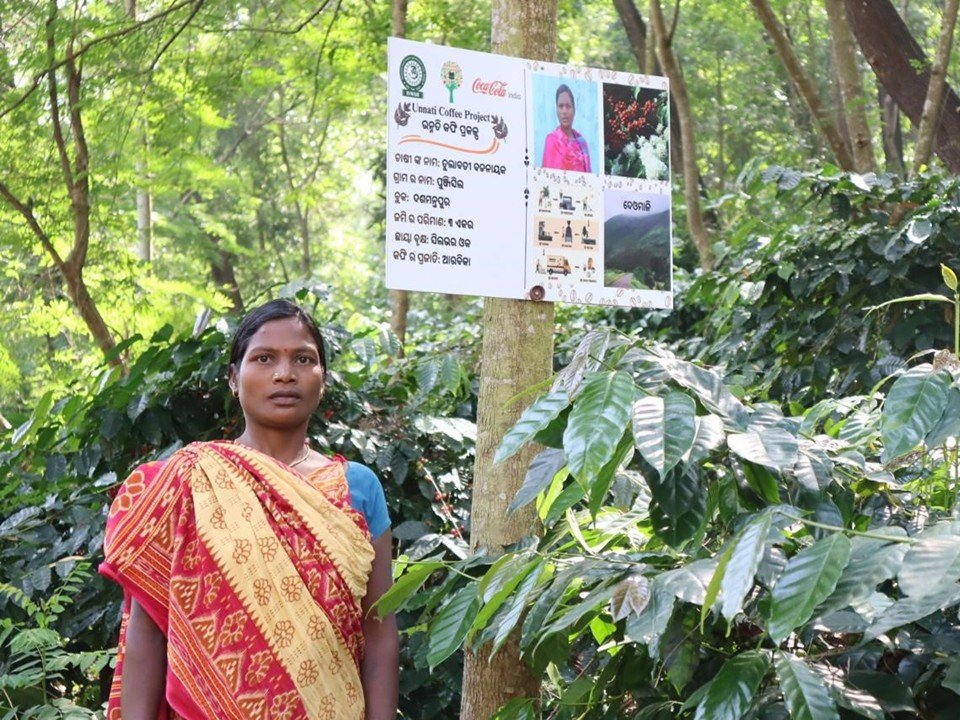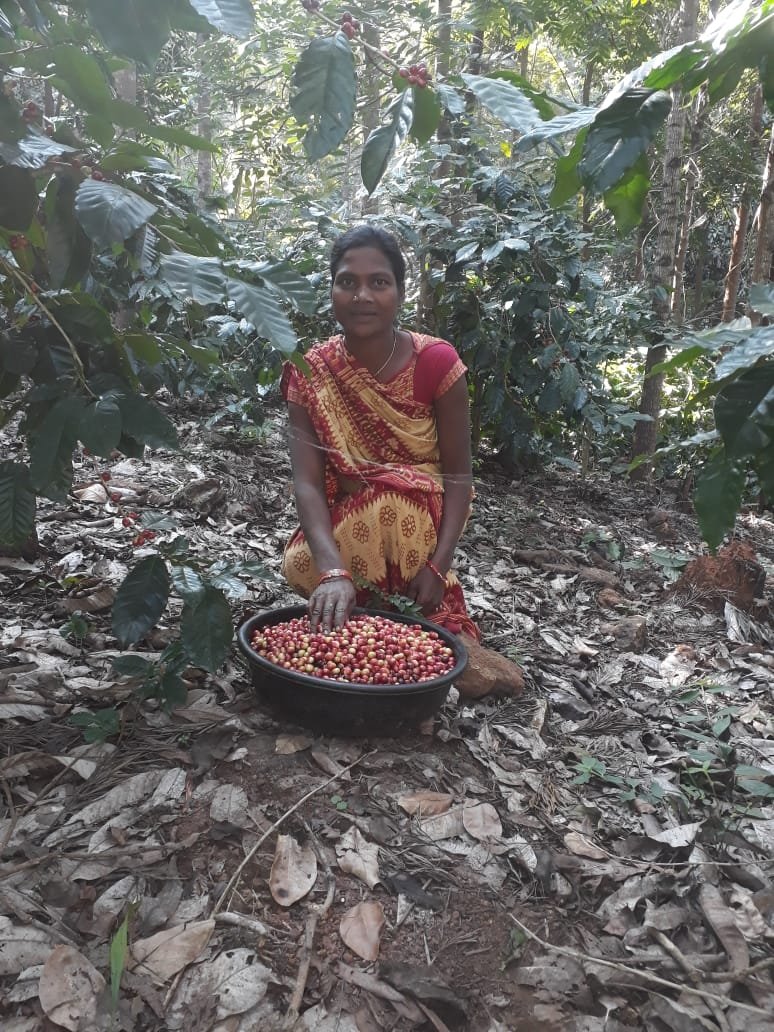Tucked away in the emerald hills of Koraput, Odisha, 37-year-old Tulabati Badanayak’s life was once an endless cycle of dawn-to-dusk labour on her family’s coffee farm. With four children to raise and limited resources at her disposal, the odds were never in her favor. The harvest was always a gamble, and the returns? Meager, at best. But today, Tulabati is more than a coffee farmer – she’s a force of nature, transforming her community one coffee bean at a time. What sparked this change? A powerful fusion of tradition, innovation, and sheer determination. TheGlitz reports…

Tulabati Badanayak & Coffee
At the heart of this revolution is Project Unnati Coffee – a collaboration between ISWAR (Integrated Social Welfare and Research Centre) and Coca-Cola India. This initiative didn’t just teach sustainable farming techniques; it unlocked something far greater. It gave Tulabati and hundreds of others the tools to reclaim their future.
Forget about coffee as a commodity – Tulabati’s beans are now a luxury. Through Project Unnati, she was trained in selective harvesting, pulping, and sun drying – methods that transformed her humble crop into a premium product. Her once-overlooked beans now command attention, and the traders who once dismissed her are now lining up for a taste of her perfectly ripened, sun-dried coffee cherries.
Tulabati’s Saga
“We were scraping by,” Tulabati Badanayak says, reflecting on life before Unnati. “I never imagined our coffee could stand out, let alone become sought after. But now, traders are noticing. They’re paying more for what we grow.” And that “more” means a lot – her income has surged, with Tulabati expecting to earn an additional INR 25,000 this season alone.
But let’s not just talk numbers. This newfound prosperity has given Tulabati something even more priceless – power. The power to reshape her life and that of her family’s. With the extra income, she’s planning to renovate her home, swap the earthen floors for cool tiles, and, most importantly, invest in her children’s education. Her daughters, who walk 6 kilometers each day to school, are her pride. “Education is everything,” she says, her eyes alight with ambition. “I want my daughters to have every opportunity, no matter how far they have to go.”
Yet Tulabati’s journey doesn’t stop with coffee. Far from it. The transformation spilled over into something bigger – a call to action for eco-tourism and conservation. The hills and waterfalls of Koraput, once pristine, had become the victims of unchecked tourism. Polluted streams and overcrowded trails were threatening the land she loved. Enter Project Unnati’s eco-tourism training, where Tulabati learned how to turn the tide.

Restoring The Land
Tulabati and her community rolled up their sleeves, clearing overgrown paths through coffee plantations, restoring the landscape, and reinventing themselves as guardians of Koraput’s natural beauty. Now, tourists come not just for the coffee but for the experience – guided eco-tours that wind through lush plantations, cascading waterfalls, and, of course, the village’s best-kept secret: Tulabati herself. These tours don’t just showcase Koraput’s beauty – they funnel funds back into the village, ensuring both environmental preservation and economic growth.
It’s a transformation not just of the land, but of the spirit. And at the center of it all is Tulabati, now a mentor to 20 women in her community, teaching them the farming and conservation techniques that have made her a local heroine. Together, they’ve built something bigger than coffee—they’ve created a sustainable future.
TheGlitz Says
What started as a simple quest to improve her farm has evolved into something much more profound: a blueprint for community-driven change, led by women who refuse to be left behind.
Tulabati’s story is a potent reminder that empowerment is about more than just survival – it’s about reclaiming your narrative, redefining your possibilities, and, yes, growing a damn good cup of coffee along the way.













